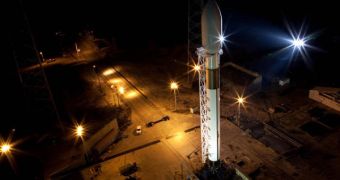The time may never be more appropriate for NASA to start collaborating with partners from the private sector in its endeavors, analysts say. With massive budget restraints planned for the next few years, and with the ongoing demands of Project Constellation, the agency should start thinking of new ways to achieve its objective, and a good way to do this could be to work together with other space firms in the United States. Unlike others before him, NASA's new Administrator, Charles Boden, is firmly in favor of such collaborations, Space reports.
While speaking before a Senate Committee during her July 8th confirmation hearing, NASA Deputy Administrator Lori Garver emphasized that the commercial and private sectors might surprise everyone with their abilities, if given the chance. She added that, while NASA experts dominated the space-flight industry, those working for private companies were not bad themselves, and that they could bring an important contribution to America's space development, especially under the current conditions.
Additionally, the White House-appointed panel that surveyed NASA activities over the last couple of months recommended recently that the agency saved about $2.5 billion from 2009 to 2014 from its own funding, in order to support private endeavors of creating spacecraft capable of reaching low-Earth orbit, and even beyond. Space X's Falcon 9 is just one example of a delivery system built entirely with private funding, but which could be used to deliver NASA equipment where it's needed as well.
“In these fiscally constrained and challenging times. I think you will see a lot more partnerships with industry and international agencies,” John Olson, who is the NASA director of the exploration, and also the deputy for commercial space support, said recently in a conference.
In addition to the $500 million that the space agency gave Dulles, Va.-based Orbital Sciences Corp. and Hawthorne, California-based Space Exploration Technologies Corp. for developing spacecraft able to ferry supplies to the ISS, it has also agreed now to pay them an additional $3.5 billion. The new funds are destined to cover the expenses of carrying 20 tonnes of supplies to the station from now to 2016.

 14 DAY TRIAL //
14 DAY TRIAL //